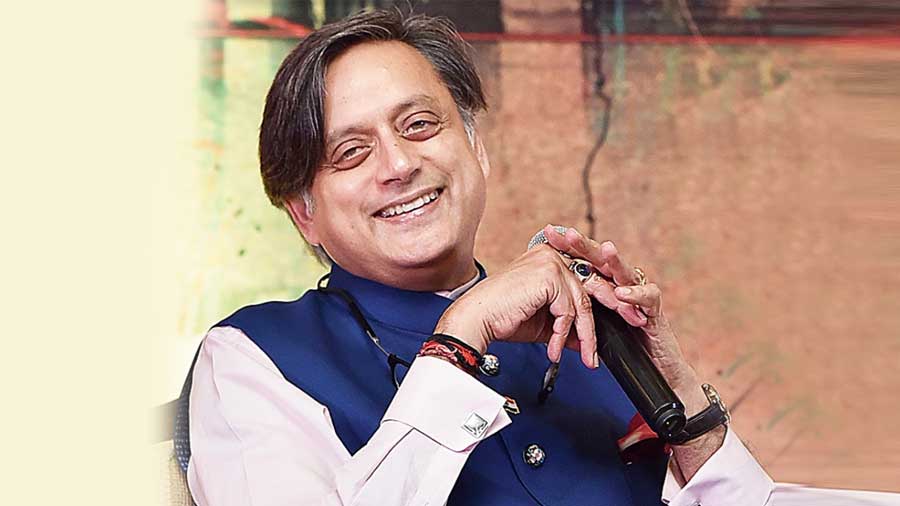It is easy to take Shashi Tharoor for granted. Every year brings a new Tharoor tome that examines India’s relationship with itself or the world at large. Additionally, there are op-eds, lectures, panel discussions and tweets that articulate Tharoor’s views in his inimitable fashion.
But after four decades of ceaseless writing, the 65-year-old, who has been a Member of Parliament since 2009 and served as the Under Secretary General of the United Nations between 2002 and 2007, is willing to take stock (though not to pause!).
Thus, Tharoor’s latest book, Pride, Prejudice and Punditry, looks back and documents the best of his writing career thus far, spanning his fiction, non-fiction and poetry. After its Kolkata launch at ITC Sonar, My Kolkata caught up with Tharoor to chat about his compendium, cricket, his formative years in Kolkata and much more.
Excerpts from a warm conversation on a chilly winter evening.
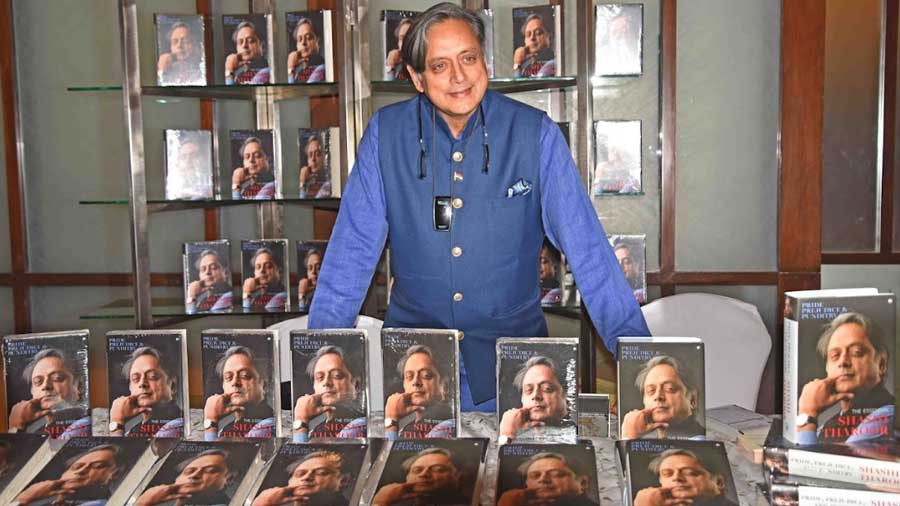
Tharoor at the launch of 'Pride, Prejudice and Punditry' at ITC Sonar, Kolkata Amit Datta
My Kolkata: Pride, Prejudice and Punditry begins with your take on some of India’s greatest figures in a section called “In the Company of Giants”. Which of these “giants” resonated with you the most?
Shashi Tharoor: That would be Pandit Jawaharlal Nehru. Largely because his politics remain deeply inspiring. In many ways, the India that I grew up in was built out of the vision of Nehru. That’s something which has shaped us for good and for ill. I’m not saying that everything is equally admirable. But given the impact Nehru’s vision had, it matters a great deal to me.
Secondly, there’s also the fact that he was more than just a politician. He had the most amazing intellect, and his writings rank among the greatest political writings in the 20th century, and not just in India. Because he had that kind of mind, I found him particularly admirable.
One of the central themes across the speeches included in your book has been your idea of India as a place, where most of all, we can agree to disagree. Does that India still exist?
There is, unfortunately, a level of intolerance in the present government, which throws elements like disagreement, diversity and heterogeneity very much into doubt. This is a regime that has a much more narrow-minded vision of India. They see India essentially through the prism of their Hindutva ideology. Therefore, they see India as a Hindu rashtra.
Whereas, if you take the Nehruvian view of India, it’s a collection of diversities, emerging from an ancient civilisation, united by a common geography and history, but dreaming the same dreams of the future together. That would mean it doesn’t matter what your language, religion, caste, or region is. Ultimately, that Indianness you like to see is all that matters.
That kind of thinking seems to be anathema to those who want to promote the idea of a Hindu rashtra, who’re essentially dividing rather than unifying the country.
!['[Nehru] was more than just a politician. He had the most amazing intellect, and his writings rank among the greatest political writings in the 20th century.' says Tharoor](https://assets.telegraphindia.com/telegraph/2021/Dec/1640330325_2.jpg)
'[Nehru] was more than just a politician. He had the most amazing intellect, and his writings rank among the greatest political writings in the 20th century.' says Tharoor TT archives
In your writings on nationalism in the book, you counter what you call “ethnic nationalism” (based on majoritarianism and Hindutva) in contemporary India with your version of civic nationalism (based on constitutional rights and a secular Indian identity). But do you not think that this is more of a metaphysical rather than a politically feasible solution?
Not necessarily. I also compound it (civic nationalism) with patriotism, which is something anyone can understand. As I’ve said before, Nehru having tears in his eyes hearing Lata Mangeshkar sing Aye mere watan ke logon is patriotism. Coming home and taking in the sights and smells in your neighbourhood, feeling an ineffable love for the place, that’s also patriotism.
Patriotism is something every human being can relate to. When it comes to nationalism, I feel that civic nationalism, wherein your rights and privileges exist in institutions and constitutions, makes more sense than a nationalism coming out of the fact that you’re a Hindu, that too a particular kind of Hindu (which happens in ethnic nationalism).
Civic nationalism isn’t difficult, because whenever I’ve campaigned during elections, my voters have understood and accepted this. At least so far! For three elections they’ve taken my line and accepted what I stand for and my set of values, which they can identify with.
For me, an inclusive India is going to be the defining slogan for the next few years, and also the slogan of the Opposition challenge to the main prevailing orthodoxy of the Hindutva movement. And civic nationalism has a major role to play in that.
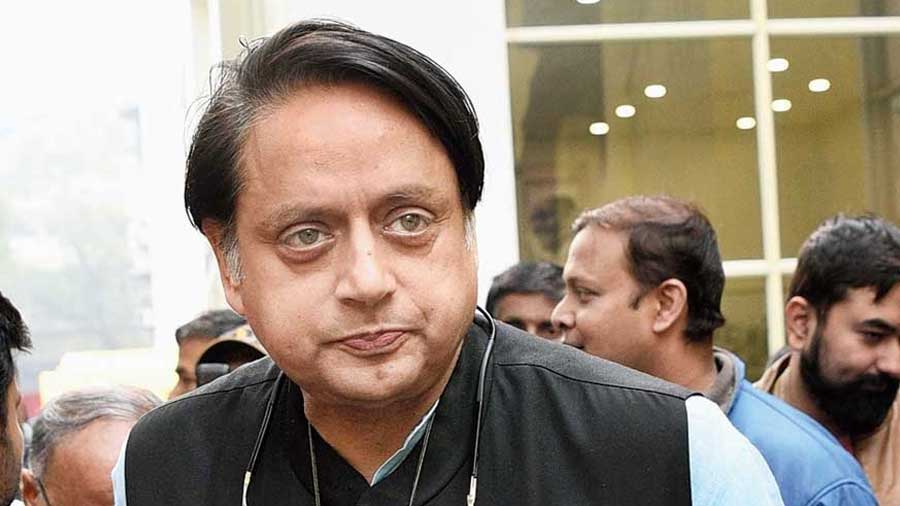
Tharoor has been a firm advocate of countering ethnic nationalism with what he describes as civic nationalism TT archives
For someone who has never been a full-time writer yet who never wants to become a “former writer”, you have been incredibly prolific. Which has been the hardest phase of your career during which to keep up your regular writing?
Well, there wasn’t any particularly easy period. It always meant making an extra effort, sacrificing something, whether friendships, holidays or entertainment. When you’re doing a full-time job and also writing, the writing comes at the expense of the limited personal time you have available.
As I rose up the United Nations’ hierarchy, the time available became even more limited. So, for example, I had a rather big success when The New York Times chose to review my novel Show Business (1992) on the front page of their book reviews section. That is the highest prestige an author can have in America, at least that’s how it was in those days. When that happened, I got an excited call from my publisher and agent asking, “Where’s the next manuscript? This is your moment to make a killing!”
And I had to say, “What manuscript! I’m dealing with Bosnia.” I was in the middle of handling the Yugoslav Civil War for the UN Peacekeeping department. As it turned out, I didn’t write my next book for another four to five years, which was India: From Midnight to the Millennium (1997). That was probably the most difficult period because it was a time when I had the biggest incentive to produce a new book and the least time available to even consider working on a new one.
I had 18-hour days at that time during the Yugoslav Civil War. And it’s only after that war ended that I was able to devote my evenings to writing again.
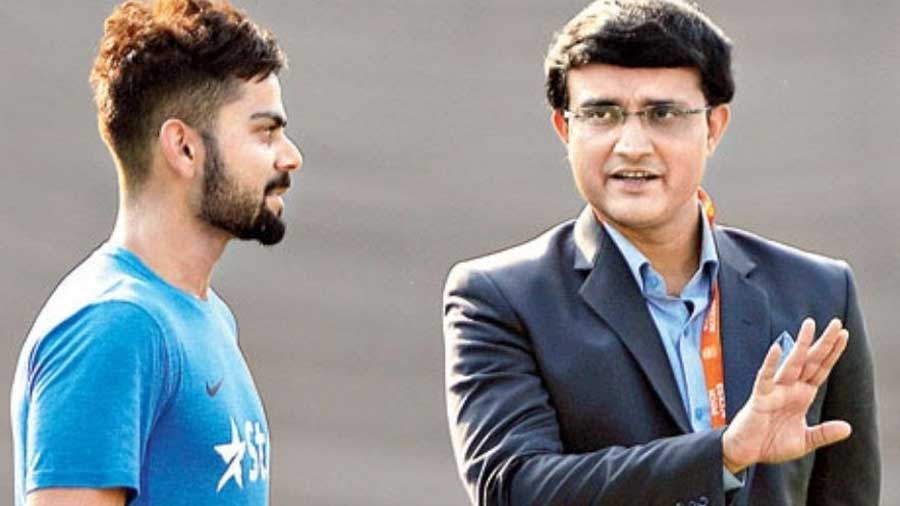
A file photo of Virat Kohli in conversation with Sourav Ganguly TT archives
Coming to your favourite sport, what do you make of the BCCI’s decision to remove Virat Kohli from the ODI captaincy? Was it the right move and were you bemused by the manner in which it was done?
I was bemused by the fact that it was handled so badly. We are the biggest and the richest cricketing power in the world. We ought to have the governance structure to go with it. I remember the late Arun Jaitley telling me many years ago at the UN that India is to world cricket what the United States is to the UN Security Council. And if we are that, then we ought to be setting an example before the world not just in how we behave with other countries, but also in how we manage our own affairs. I think it’s very clear that this entire episode could’ve been handled better.
Tell us about your time in Kolkata and the best memories you had here during your formative years.
I love Calcutta. I grew up here and went to high school here. Even though I went to Delhi for my college education because of the troubles in Calcutta University at the time, my parents were still here. So I’d come back three times a year, and therefore, the affinity to the city never dimmed in any way. One of the great things about this city is that it’s a city that reads. It’s a city of books, it’s the city of College Street and pavement book stalls, and of people who argue about books and ideas as if they really matter. That’s what makes Calcutta really special to me.

One of the great things about this city is that it’s a city that reads. It’s a city of books, it’s the city of College Street and pavement book stalls, and of people who argue about books and ideas as if they really matter. That’s what makes Calcutta really special to me.
Shashi Tharoor
You spent three extremely productive years in high school at St. Xavier’s (between 1969 and 1971) in Kolkata. How did the Xaverian experience shape you?
St. Xavier’s has always meant the world to me. I found it to be a place where, in all sorts of ways, I found an experience that shaped my values as a human being. There was academic excellence and rigour, for when I graduated, I won the gold medal from the West Bengal government for the best marks. So I was obviously in a school that was able to prepare me well academically and I’m grateful for that.
But equally, the consciousness of social service, the spirit of creative endeavour through plays and debates, the freedom I was given to express my views while editing the school magazine, made it really special.
I’ve always felt that St. Xavier’s and Calcutta are places where human relationships mattered much more than the Bombay I had known and grown up in. The Xaverian experience, in particular, left a terrific imprint on the kind of human being I am today. It also equipped me for the subsequent life I had as a Stephanian in college.
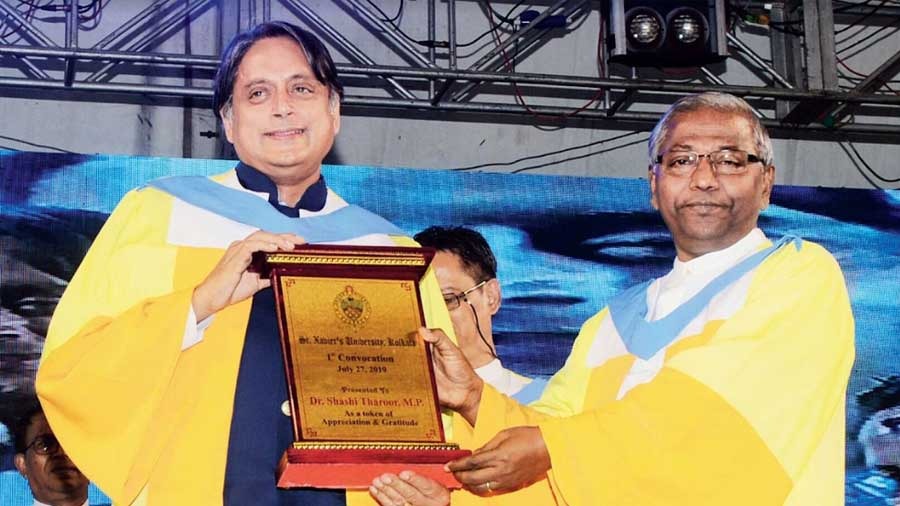
Tharoor was present at the first convocation of St. Xavier’s University in 2019 and frequently returns to his alma mater TT archives
Finally, you’ve been responsible for introducing millions of Indians to countless words over the years. But is it true that you may have invented one, too, through your usage of the word “prepone”?
No, apparently not. But I did think I had invented it for a while!
When I used it, I wasn’t aware of anyone else who had used it before. I had never read it anywhere and I thought it was a much simpler expression than saying, “Can I advance an appointment?” or something to that effect. Instead, I would say, “Let’s prepone this appointment.”
But it so happened that when I wrote an article suggesting that I might have been the one to invent prepone, I got a reply from one of the editors of the Oxford English Dictionary, no less, who showed me citations of the usage way before I had ever used the word. Naturally, I withdrew my claim of having invented the word.
